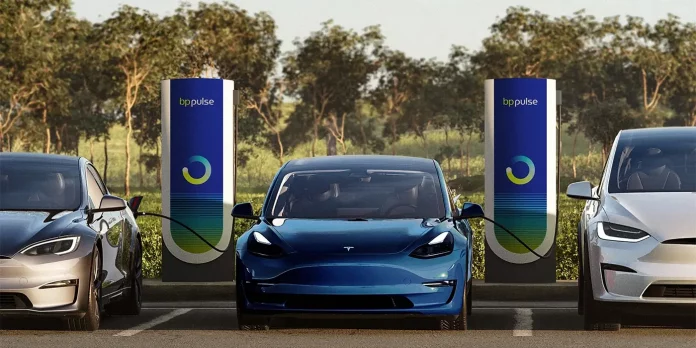Tesla’s recent announcement to reduce its Supercharger business has caused a stir in the industry, affecting roughly 500 employees. As a result, other electric vehicle (EV) charging companies are looking to expand.
BP Pulse, the EV charging subsidiary of oil and gas giant BP, has expressed its intention to acquire real estate for network expansion following Tesla’s announcement. However, Tesla clarified that it is slowing down Supercharger network expansion to focus on upgrades, leaving the status of upcoming projects uncertain.
In New York, Tesla has reportedly canceled some planned sites, disrupting ongoing projects. This has led to increased interest from charging providers like BP in acquiring prime locations.
Sujay Sharma, CEO of BP Pulse America, invited stranded real estate partners to reach out, highlighting BP’s advantage of leveraging existing gas stations for EV charging infrastructure.
Nevertheless, other industry players, like Revel and EVgo, view the locations abandoned by Tesla as opportunities for growth. EVgo’s CEO noted that Tesla’s decision creates space for other charging networks to fill the void in station growth.
BP, alongside chains like Pilot-Flying J and Love’s Travel Stops, is heavily investing in EV charging. In 2023, BP pledged $1 billion for U.S. EV charging efforts by 2030 and made a landmark $100 million order for Tesla’s charging hardware, signaling a shift in Tesla’s historically self-operated Supercharger network.



